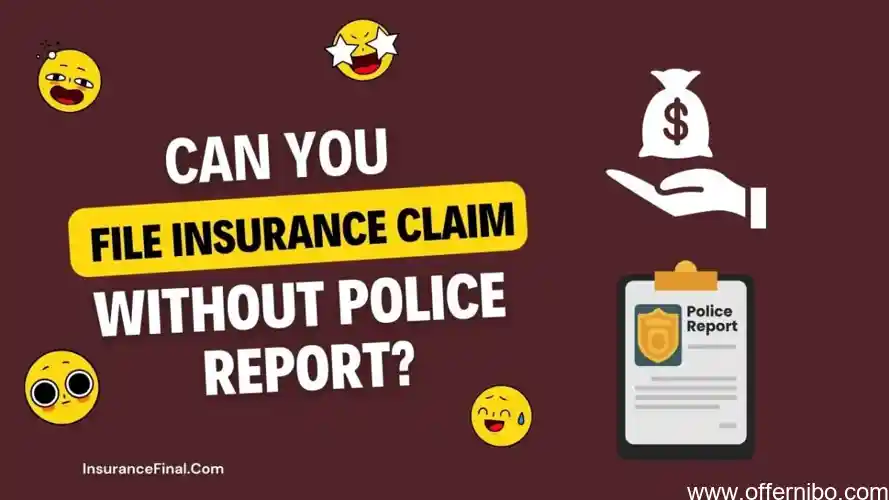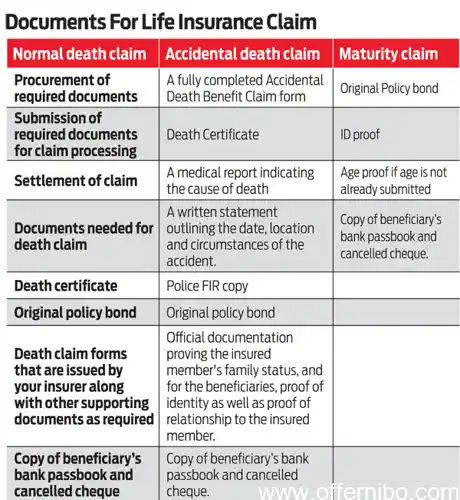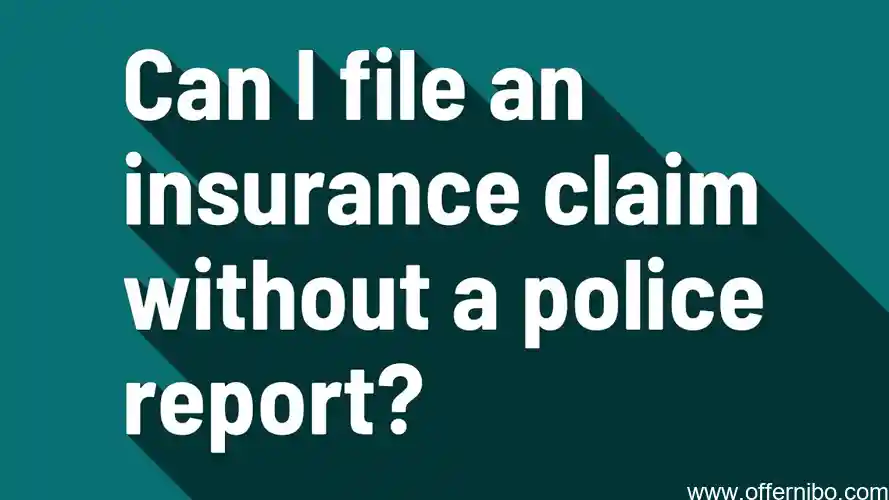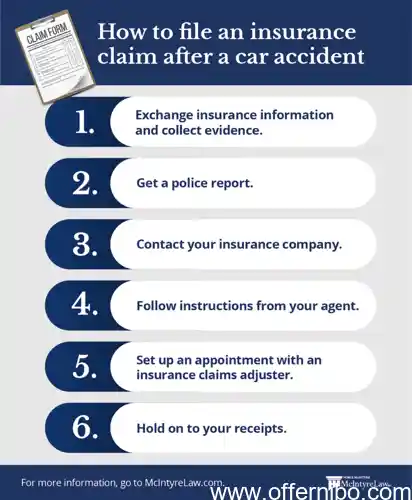Filing an insurance claim can be a stressful experience, especially if the incident in question falls into a gray area when it comes to documentation requirements. One such instance is determining whether or not you need a police report to file an insurance claim. While it’s generally advisable to file a report for major incidents, there are scenarios where you may not have one and still need to make a claim. This guide will delve into the intricacies of filing an insurance claim without a police report.We’ll explore the circumstances under which insurance policies may mandate a police report, alternative forms of documentation you can gather to support your claim, and exceptions to the police report requirement. We’ll also discuss the potential consequences of filing a claim without a police report and provide insights into navigating the claims process successfully without one. Whether you’re facing a property damage incident, a car accident, or a theft, this comprehensive guide will empower you with the knowledge and strategies necessary to effectively file and pursue your insurance claim.
When an Insurance Policy Requires a Police Report

When it comes to filing an insurance claim, one of the most important pieces of documentation is often a police report. After all, an insurance company needs to know the full extent of the damages in order to properly process your claim. However, there are some situations where you may not have a police report to provide. Maybe the accident was minor and you didn’t feel the need to call the police. Or maybe you were the victim of a hit-and-run and the other driver fled the scene. Whatever the reason, if you find yourself in this situation, you may be wondering if you can still file an insurance claim without a police report.
Alternative Documentation for Insurance Claims

When the unexpected occurs and you find yourself in the unfortunate position of needing to file an insurance claim, understanding your options and the documentation required is crucial. One common question that arises is whether you can file an insurance claim without a police report. While a police report is often a standard requirement for certain types of claims, particularly those involving accidents or criminal activity, there are alternative forms of documentation that can be used in its place. In this article, we’ll explore the circumstances where a police report is not mandatory, the various types of alternative documentation you can provide, and the consequences of filing a claim without a police report. By arming yourself with this knowledge, you can ensure a smoother and more efficient claims process.
Witness Statements
If you find yourself without a police report but still need to file an insurance claim, don’t fret; there are alternative forms of documentation that insurance companies may accept. These alternatives can vary depending on the insurance company and the specific type of claim, but some common examples include witness statements, medical records, photographs or videos, and property damage estimates. Witness statements provide firsthand accounts from individuals who witnessed the incident, while medical records document any injuries or medical expenses incurred. Photographs or videos can capture the scene of the incident and serve as visual evidence. Property damage estimates provide a professional assessment of the extent of the damage to your property. By providing insurers with these alternative forms of documentation, you can increase the likelihood of your claim being processed and approved, even in the absence of a police report.
Medical Records
There may be times when filing a police report isn’t feasible, especially if the incident was minor or if you’re unable to contact the authorities promptly. In such cases, alternative documentation can be used to support your insurance claim. Gather witness statements from individuals who witnessed the incident, providing their contact information for verification. Collect medical records if you or others sustained injuries, as they serve as valuable evidence of the incident’s severity. Take photographs or videos of the scene, capturing any damage to property or vehicles involved. Obtain property damage estimates from qualified professionals to assess the extent of the loss. These alternative forms of documentation can help strengthen your claim in the absence of a police report.
Photographs or Videos
In some cases, an insurance policy may require you to file a police report to support your claim. However, if a police report is not available or not required, alternative documentation can be used to prove your loss or damage. The key is to provide your insurance company with as much evidence as possible to support your claim. This may include witness statements, medical records, photographs or videos, and property damage estimates.
Property Damage Estimates
Whenever you file an insurance claim, supporting your claims with proper documentation is essential. While a police report is often seen as the gold standard, there are situations when you may not have one. Don’t fret just yet; there are alternative ways to substantiate your insurance claim. Let’s delve into the various types of documentation that can help you bolster your case and get the compensation you deserve.
Exceptions to the Police Report Requirement

Exceptions to the Police Report Requirement
Filing an insurance claim without a police report is generally not advisable, but there are a few exceptions to this rule. You may be able to file a claim without a police report if the accident was minor and there is little to no property damage or bodily injury. Additionally, you may not need a police report if the accident occurred on private property and there were no witnesses. In some cases, your insurance company may request additional documentation, such as witness statements, medical records, or photographs, to support your claim in lieu of a police report. However, it’s crucial to check with your insurance company to determine their specific requirements and avoid any potential complications with your claim.
Consequences of Filing an Insurance Claim Without a Police Report

Filing an insurance claim without a police report can have serious consequences that can impact your financial well-being and your ability to get fair compensation for your losses. Without a police report, the insurance company may question the validity of your claim, especially if there is any suspicion of fraud or exaggeration. They may also delay the processing of your claim or even deny it altogether, leaving you responsible for the costs of repairs or medical expenses. Moreover, if your claim involves a crime, such as theft or vandalism, a police report is crucial for providing evidence and initiating an investigation, which can strengthen your case and increase your chances of receiving a fair settlement.
Navigating the Claims Process Without a Police Report
Navigating the claims process without a police report can be like trying to navigate a maze without a map. It can be challenging, but it’s not impossible. If you find yourself in this situation, you must be prepared to provide additional documentation to support your claim. This can include witness statements, medical records, photographs or videos, and property damage estimates. You may also need to be prepared to answer questions about the incident from your insurance company. By being organized and proactive, you can increase your chances of getting your claim approved, even without a police report.
Q1. Can you file an insurance claim without a police report?
Ans: Yes, you can file an insurance claim without a police report.
Q2. Are there any circumstances where a police report is required?
Ans: Yes, some insurance companies may require a police report for certain types of claims, such as hit-and-run accidents.
Q3. What should you do if the other driver is uninsured or at fault?
Ans: File a claim with your insurance company and provide them with as much information as possible, including the other driver’s contact and insurance details.
Q4. Can filing a claim without a police report affect my insurance rates?
Ans: Filing a claim without a police report may not affect your insurance rates, but it depends on the insurance company and the circumstances of the claim.
Q5. What are the benefits of filing a claim without a police report?
Ans: Filing a claim without a police report can save time and hassle, and may be more convenient if the accident was minor.
Q6. What are the risks of filing a claim without a police report?
Ans: Filing a claim without a police report may make it harder to prove fault and recover damages if the other driver disputes the claim.